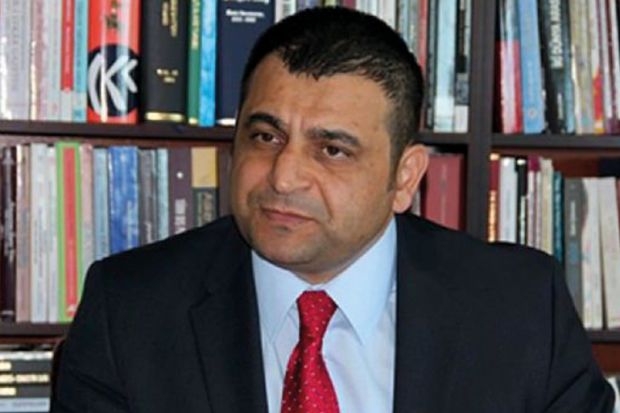A Turkish academic accused of terrorism charges was convicted and given a jail sentence of nearly a decade before judges had even read his defence statement, his lawyer has claimed.
Last month, Sedat Laçiner, a prominent critic of the Turkish government’s authoritarian and Islamist policies, was sentenced to nine years and four months in prison over his alleged ties to the banned Gülen movement that is blamed for a failed military coup in July 2016.
Professor Laçiner, a political scientist who holds a PhD from King’s College London, had already spent 26 months in prison awaiting trial.
His jailing completes a swift fall from grace for a one-time star of Turkish academia, who became the country’s youngest university rector in 2011 when he was appointed head of Canakkale Onsekiz Mart University, in the Dardanelles region, at the age of 39.
In a letter to Times Higher Education, his attorney Recep Seyhan has claimed that a litany of mistakes and violations of law took place during Professor Laçiner’s one-day trial on 25 September.
A written petition containing Professor Laçiner’s defence was “neither processed nor read by the panel of judges”, while the scholar was denied the “right of saying the last word – an important right in Turkish criminal law – before the court passed its decision on his case”, he said.
Mr Seyhan also raised grave concerns about the impartiality of the judiciary, pointing out that the same judge who approved Professor Laçiner’s arrest two years ago was involved in his trial – a “severe mistake and violation” of Turkish law, which was ignored “despite the fact that the defence brought the situation to the attention of the panel of judges”.
Political interference with the judiciary during the trial is also highly likely, claimed Mr Seyhan. Halfway through the trial, the presiding judge took two phone calls in the courtroom, leading the judges to “change negatively” towards the defendants, he said. The prosecutor also left the courtroom “approximately 40 times” during the trial to speak to unknown persons, he added.
The letter offers a rare glimpse of judicial proceedings faced by numerous Turkish academics, of whom more than 6,000 have been sacked since July 2016.
One of them is Professor Laçiner’s brother Vedat, a law PhD graduate from Germany’s University of Passau, who has been held in the same prison in Canakkale on similar charges, alongside dozens of academics.
According to Mr Seyhan, “no solid evidence” was submitted to prove Professor Laçiner was a Gülenist. However, two columns published in a Turkish newspaper in which he criticised the “government’s efforts to deviate Turkey from its western direction” were offered as proof of his crimes, he added.
“It is a fact accepted by everybody that this case is a political case,” said Mr Seyhan, who called on the international community to criticise the treatment of “innocent, aggrieved people” convicted on the basis of “unfair and biased attitudes”.
Register to continue
Why register?
- Registration is free and only takes a moment
- Once registered, you can read 3 articles a month
- Sign up for our newsletter
Subscribe
Or subscribe for unlimited access to:
- Unlimited access to news, views, insights & reviews
- Digital editions
- Digital access to THE’s university and college rankings analysis
Already registered or a current subscriber? Login








